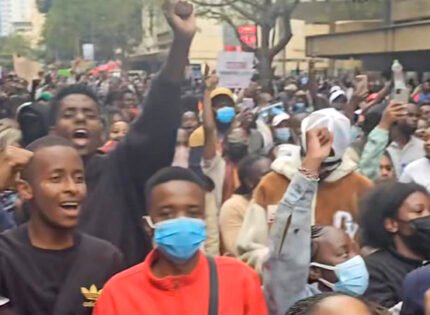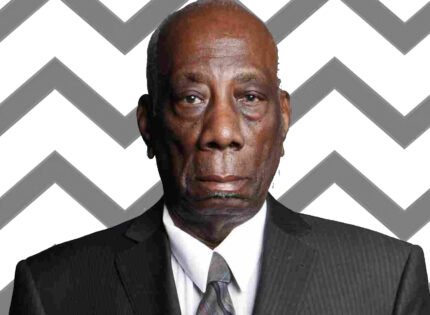“We must confront the uncomfortable truths of our history in order to create a more just future. It is only by acknowledging the past that we can move forward.”
Derrick Bell.
In this province, the “N-word” holds deep historical significance, with roots dating back to the 1600s in New France. However, the recent controversy surrounding Quebecois artist Guillaume Lemay-Thivierge’s use of the N-word took me by surprise. In an online video, Lemay-Thivierge is shown strolling through a forest, discussing the concept of hard work, while embracing a birch tree with the offensive term “nigga” clearly written on it, a reference to the Quebecois expression “travailler comme un N*g” (working like a N-word). The video’s publication triggered a swift and strong backlash, eliciting reactions of disbelief and disappointment from both the online audience and his peers, Black and White, in the artistic community.
Despite a myth that it is less violent in French, historical documents show the presence of the “N-word” used to dehumanize enslaved Black individuals during French and English regimes alike. The Honorable Michaëlle Jean, the first person of African descent to be Governor General of Canada, has commented on the word’s impact, linking it to the brutal atrocities committed by France and Belgium in their colonies. She emphasizes that in this context, the N-word in French carried a brutality equivalent to the violence inflicted on Black slaves in southern American plantations. While in her native Haitian Creole, the term “la nègès” translates to “woman,” Jean recalled that during her tenure in office, being referred to by this term in Canada took on a completely different and demeaning connotation.
It is crucial to recognize that the Lemay -Thivierge incident is not an isolated event. Growing up in regional Quebec, I became accustomed to hearing the term used casually in various colloquial derogatory expressions by neighbours, friends, teachers, colleagues, celebrities, politicians, and even family members. Throughout my formative years, the term was directed at me so frequently that it felt like it was my middle name. Among all the racial and ethnic slurs that exist, I firmly believe that none is as inflammatory as the N-word, which has been reduced to the first letter. Even today, I continue to hear reports of its widespread use in all aspects of life, from elementary school to law school.
The controversy surrounding Lemay- Thivierge reignited my thoughts about the Quebecois film “Le N*g”(the N-word), a drama released in 2002 that claimed to confront issues of racism and human ignorance. The narrative centers around a young Black teenager who is caught vandalizing a racially offensive lawn ornament in the serene Quebec countryside. This act sets off a chain of events, with neighbours, under the influence of alcohol, taking matters into their own hands. This leads to an escalation of racism and violence, ultimately resulting in the tragic shooting of the young Black man by a police officer.
While I found the movie to be both stupid and racially insensitive, what struck me as even more appalling was the promotional strategy used for the film. The poster, featuring the racist lawn ornament and the derogatory “N” word, was displayed across the province and even made its way onto television advertisements. This was not only shocking to me but also to my children, who were young teenagers at the time.
The film’s ads sparked outrage, particularly among a Black youth group in Montreal, who called for a change to both the film’s title and its promotional poster. Despite these demands, the film’s director stood firm on the grounds of artistic freedom, refusing to make any alterations.
The unexpected termination of Lemay-Thivierge from TVA, triggered by his involvement in the racist video, casts a spotlight on the wider issues of racism and media oversight within Quebec. This incident is part of a larger narrative that includes the racist assaults directed at Ricardo Lamour, an individual of African descent who lodged a complaint with the CRTC concerning Radio Canada’s employment of the N-word a few years ago. The CRTC’s subsequent censure of the word sparked debate, with notable figures in Quebec viewing it as an overreach by the federal government into the province’s cultural practices.
There still exists a populist insistence in this province, supported by the government, on the use of the damned word. For example, in 2021, a significant controversy emerged at the University of Ottawa when a White francophone professor said the N-word during a lecture in English, suggesting that Black people should reclaim the term in a manner similar to how the LGBTQ+ community has reappropriated the word “queer.”
This incident sparked a widespread debate on academic freedom and the boundaries of language use within educational contexts. In response to the unfolding situation, Quebec Premier François Legault argued that such limitations might reflect an undue influence from American cultural and social norms. In a move that underscored his stance, the government subsequently enacted legislation aimed at safeguarding the freedom to use the N-word within university settings. I believe this legislative action tacitly endorsed the broader use of the racist word beyond academic discourse.
The process of dehumanizing a group starts subtly, often with just a word or an image. The use of the “N-word” contributes to the perpetuation of anti-Black sentiment, leading to incidents of hate crimes against Black individuals at a rate twice as high as any other group in Canada. In “Maîtres chez l’Autre,” author Emilie Nicolas suggests that while this province readily acknowledges the deep-seated impact of racist violence in shaping societies across the Americas, it seems hesitant to confront its own role in perpetuating racism within its borders.
This raises an important question: Why does the “N” word hold such a charged and controversial place in Quebec? Could the backlash against Lemay-Thivierge potentially signal the beginning of a societal shift and a collective rejection of the use of the “N” word in Quebec? While the idea of reappropriating a word may seem intriguing, it is crucial to stay vigilant and resistant in order to safeguard our dignity against those who seek to “keep us in our place.” If we do not stand up for ourselves, who will?














